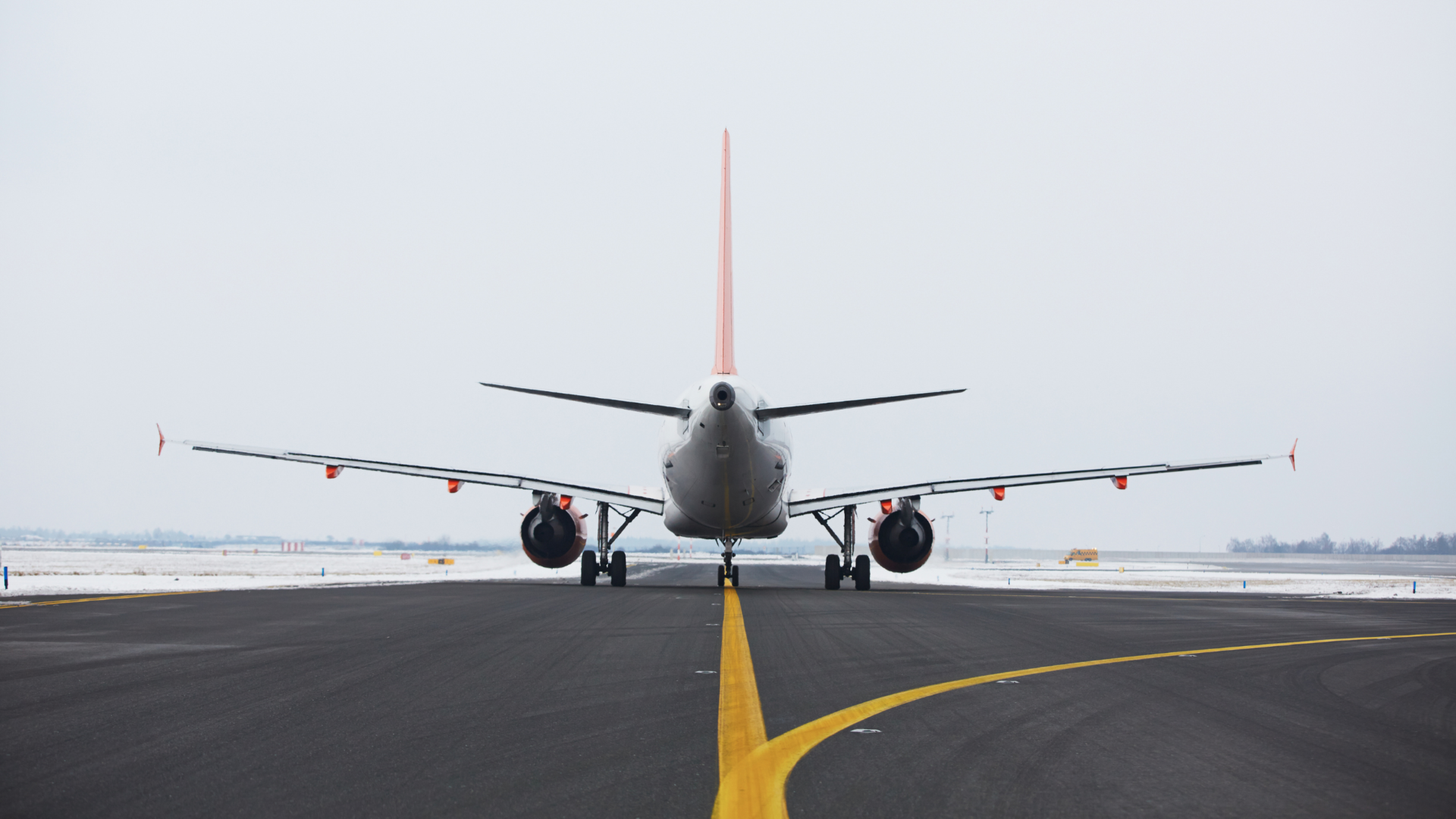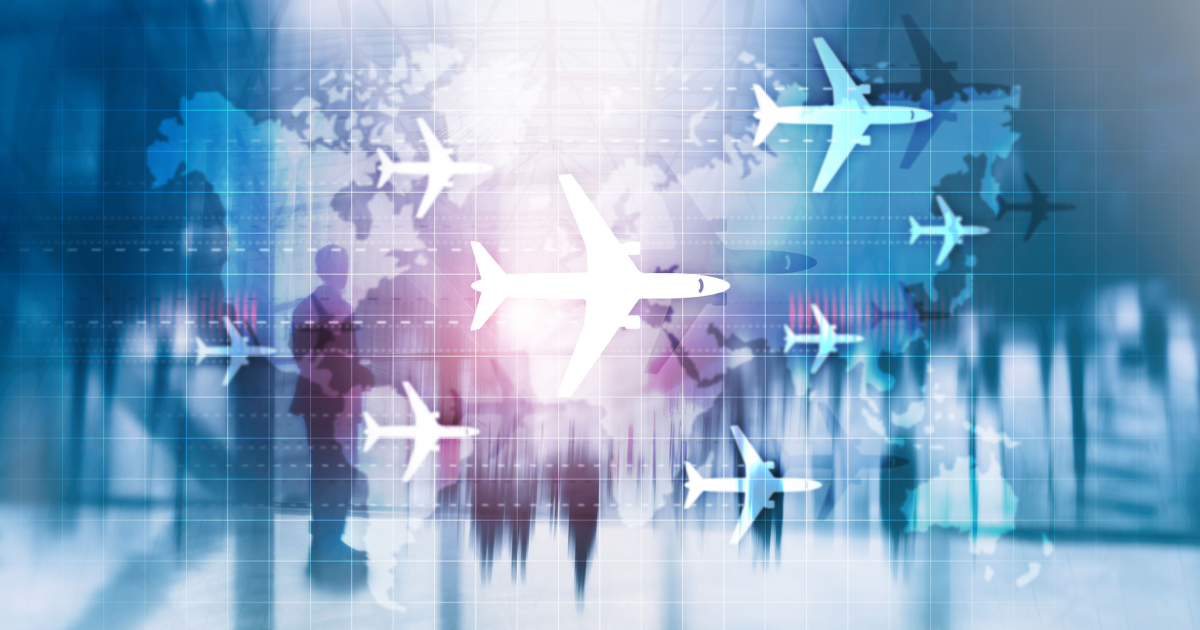
Over the years, we’ve delivered measurable AI solutions that have optimized aircraft turnaround times, reduced airport operational costs by up to 20%, and streamlined aviation documentation for leading industry players. Our expertise extends across airports, airlines, aerospace manufacturers, and private aviation companies.
Beyond individual projects, our partnerships within the aviation industry are built for the long term. We’ve spent years deeply understanding industry-specific challenges – such as fluctuating passenger demand, complex operational constraints, regulatory compliance pressures, and sustainability goals. This has allowed us to establish best practices and create proprietary AI frameworks and accelerators tailored specifically to the aviation sector. As a result, we can rapidly deliver scalable solutions that address evolving needs.
Among the key challenges we tackle are:
- Reducing aircraft ground time without compromising safety
- Optimizing passenger flow and enhancing passenger experience
- Improving accuracy and speed of aviation documentation & compliance reporting
- Balancing business goals with operational and environmental constraints
- Integrating emerging technologies like Digital Twin and LLM into legacy systems
Leveraging advanced technologies – including Digital Twin simulations, Large Language Models (LLMs), AI-powered optimization engines, and deep learning – we help aviation leaders transform operations, enhance passenger experience, and unlock new revenue opportunities.
Digital Twin-Enabled Optimization
Aviation Documentation & Compliance
LLM-powered Passenger Assistance Chatbot
How AI solutions supports aviation industry
Measurable operational gains
Drawing on proven AI deployments in aviation, we help airports and airlines reduce aircraft turnaround and taxi times, ease congestion with intelligent gate and stand assignment, and cut operating costs by up to 25% through data-driven optimization.
Increased revenue impact
Our AI-powered stand allocation and dynamic pricing engines prioritize high-revenue gates and adapt to real-time demand, unlocking new yield opportunities while automation redirects teams toward higher-value, passenger-facing activities.
Enhanced safety & compliance
With predictive monitoring, anomaly detection, and automated regulatory documentation, our solutions help maintain the highest safety standards and keep operations aligned with ICAO, EASA, and FAA requirements.
Environmental sustainability
Through AI-enabled route and stand optimization, smarter taxi sequencing, and reduced aircraft idle times, we help aviation partners lower fuel consumption and minimize environmental impact.
Critical aviation challenges we solve with AI
How can AI help reduce aircraft turnaround time and improve ground operations efficiency?
Challenge: Airlines face significant losses when aircraft spend excessive time on the ground due to inefficient turnaround processes, poor resource coordination, and manual scheduling that creates bottlenecks in daily operations.
Solution: We’ve developed practical AI systems that analyze real-time operational data to optimize ground crew allocation, streamline turnaround workflows, and reduce aircraft ground time while maintaining safety standards.
Discover our case study: Optimizing Aircraft Turnaround Through Practical AI
What AI solutions exist for optimizing airport resource allocation and maximizing revenue?
Challenge: Airports lose substantial revenue opportunities when aircraft stands are assigned without considering business impact, passenger flow patterns, or operational efficiency, resulting in suboptimal resource utilization.
Solution: Our dual-layered optimization system combines operational constraints with business intelligence to maximize revenue generation from high-value zones while improving passenger experience and operational efficiency.
Discover our case study: Optimizing Airport Stand Assignment for Efficiency and Business Impact with AI
How can AI improve airport operational support and information management systems?
Challenge: Airport operations teams struggle with information silos, slow response times to operational queries, and inefficient knowledge management that hampers decision-making during critical operational moments.
Solution: We’ve implemented LLM-based assistance systems that provide instant access to operational knowledge, automate routine inquiries, and enhance decision-making processes for airport operations teams.
Discover our case study: Streamlining Manufacturing: 30% Reduction in Manual Work with AI
Can AI automate aviation documentation and ensure compliance requirements?
Challenge: Private aviation companies and operators waste significant time on manual documentation creation, face compliance risks from human errors, and struggle with complex flight coordination paperwork that slows operations.
Solution: Our Aviation Sourcing Chatbot automates ASR document generation, integrates seamlessly with existing systems, and ensures accurate, compliant documentation while accelerating trip planning processes.
Discover our case study: AI-driven Document Generation on AWS infrastructure
AI solutions in aviation
Reduce unscheduled downtime and maintenance costs through AI-powered failure prediction
AI-powered systems predict equipment failures before they happen, enabling proactive maintenance scheduling. These solutions analyze sensor data from aircraft components, engines, and systems to forecast potential issues, allowing airlines to schedule repairs during planned maintenance windows rather than experiencing costly unscheduled downtime.
By optimizing spare parts inventory and maintenance workflows, predictive maintenance significantly reduces operational costs while improving aircraft availability and safety.
Optimize flight operations and crew scheduling with AI
Intelligent systems optimize flight operations from route planning to crew scheduling for maximum efficiency. AI algorithms analyze weather patterns, air traffic conditions, and operational constraints to recommend optimal flight paths that reduce fuel consumption and flight times while maintaining safety standards.
Advanced scheduling systems consider crew qualifications, rest requirements, and regulatory compliance to create efficient staffing plans that minimize costs and ensure adequate coverage.
AI-powered streamlining of ground operations and AI-enhanced passenger flow management
AI orchestrates complex ground operations to maximize efficiency and passenger experience. These systems optimize gate assignments, manage passenger flow through terminals, and coordinate ground support equipment to reduce delays and improve operational performance.
By analyzing real-time data on flight schedules, passenger volumes, and resource availability, airports can enhance revenue generation while providing smoother travel experiences.
AI-driven aviation security enhancements and improved passenger processing efficiency
AI enhances aviation security through automated screening and threat identification systems. Computer vision and pattern recognition technologies improve baggage screening accuracy, identify suspicious behavioral patterns, and verify passenger identities through biometric methods.
By automating routine security processes and flagging anomalies for human review, these systems strengthen security effectiveness while reducing passenger wait times and improving the travel experience.
AI-automated inspection processes and AI-optimized aerospace manufacturing operations
Computer vision and machine learning automate inspection processes in aerospace manufacturing. AI systems can detect microscopic defects, dimensional variations, and surface imperfections at speeds far exceeding human capabilities while maintaining consistent accuracy.
These technologies also optimize production processes by analyzing manufacturing data to identify bottlenecks, predict equipment failures, and suggest improvements that enhance efficiency and reduce waste.
Revenue maximization through intelligent pricing and AI-based demand forecasting
Dynamic pricing algorithms maximize revenue by analyzing market demand and competitor behavior in real-time. AI systems consider booking patterns, seasonal trends, route popularity, and capacity constraints to determine optimal ticket prices that balance profitability with market competitiveness.
These solutions also identify opportunities for ancillary revenue through personalized offers for upgrades, services, and amenities based on customer preferences and travel history.










